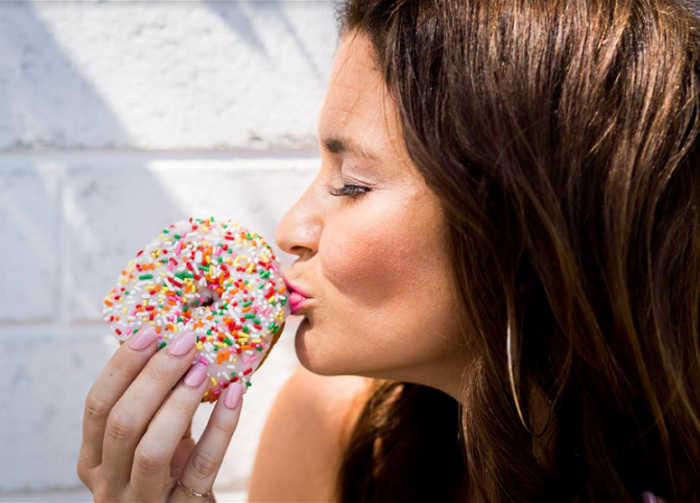In the Western world, we have come to view food and the entire process of eating as transactional.
Calories in, calories out.
Carefully calculating our macros.
Counting every nutrient to achieve optimal performance.
Or, on the opposite end of the spectrum, “I’ll eat whatever I want, when I want, because I can, thank you!”
And while I respect science and enjoy exploring the technical side of nutrition just as much as I consider myself to be body positive and in favor of the idea that there are no bad foods—just poor relationships to food—there is an element to food and mealtime that we seem to have forgotten:
Sacredness.
I travel often to Latin America, and specifically to communities that aren’t as developed with technology and resources like in many parts of the Western world, and I am hard-pressed to explain what I do as a body image and emotional eating coach. In these places, disordered eating and poor body image are not problems, because every bite of food is sacred.
In our world, where fast food is juxtaposed with careful nutritional calculation, we have forgotten what a gift each bite of food is. And similarly, we have forgotten about the miracles that are wrapped up in the entire process of eating—from the way that food is grown to how it is digested and converted into fuel for our bodies.
Our control-based eating patterns—and even the “screw it” attitude—represent a disconnection from the sacredness of food, from the miracle of the process, and from the recognition that our bodies are just as sacred.
We take for granted the way that our body functions without our effort and intention behind it.
We forget how delicate our vessels are and just how much they allow us to do—until something catastrophic happens to remind us.
We don’t take time to recognize and appreciate the way that our bodies work overtime to function optimally for us, even as they are polluted with chemicals and toxins from our air, water, and everyday environment.
What’s more, we have forgotten that the energy with which we consume food also contributes to the way that it is received and digested by our bodies.
When we are relaxed and joyful and say a blessing or set an intention for how we want food to work in our bodies, our bodies can perform their natural processes more easily.
But if we are eating while multitasking or feeling wracked with guilt over eating something “bad,” our bodies tense up and we send them into a stress response, which keeps them from digesting and absorbing our food optimally. There is no nutritional value in guilt—only heaviness.
With all the studies that have been done to show what harsh words versus kind words do to living organisms, why do we fail to apply this to our own bodies? And to the living organisms with which we fuel them?
Eating is meant to be a ceremonious union of body and spirit. In ancient cultures, blessings were given and food was eaten with reverence. This respect for the body and for the food calms the nervous system and gives it energetic instruction to receive the food, and not reject it.
And then there’s pleasure! Greek paintings and ancient Platonian philosophies link the healing power of food with pleasure. Food is meant to be savored, enjoyed, and used as a pleasurable experience. It was even thought that pleasure increased the medicinal potency of foods.
For all of our nutrition science and careful calculations, we are overcomplicating our relationship with food and forgetting the point:
Food, our bodies, and the act of eating are sacred privileges—ones that are both pleasurable and life-giving.
What really matters is not what we eat, but how we eat it.
Stop and take a breath before your next meal. Set an intention for how you want your body to receive the food and what you would like for it to do for you. Say a blessing or a prayer of gratitude over your meal.
If it feels good, why not make it a mealtime ritual?
Infusing gratitude and love into your food will give you a more pleasurable experience of eating, and will in turn infuse more gratitude and love into your body.
And who doesn’t want more of that?
~












Read 2 comments and reply